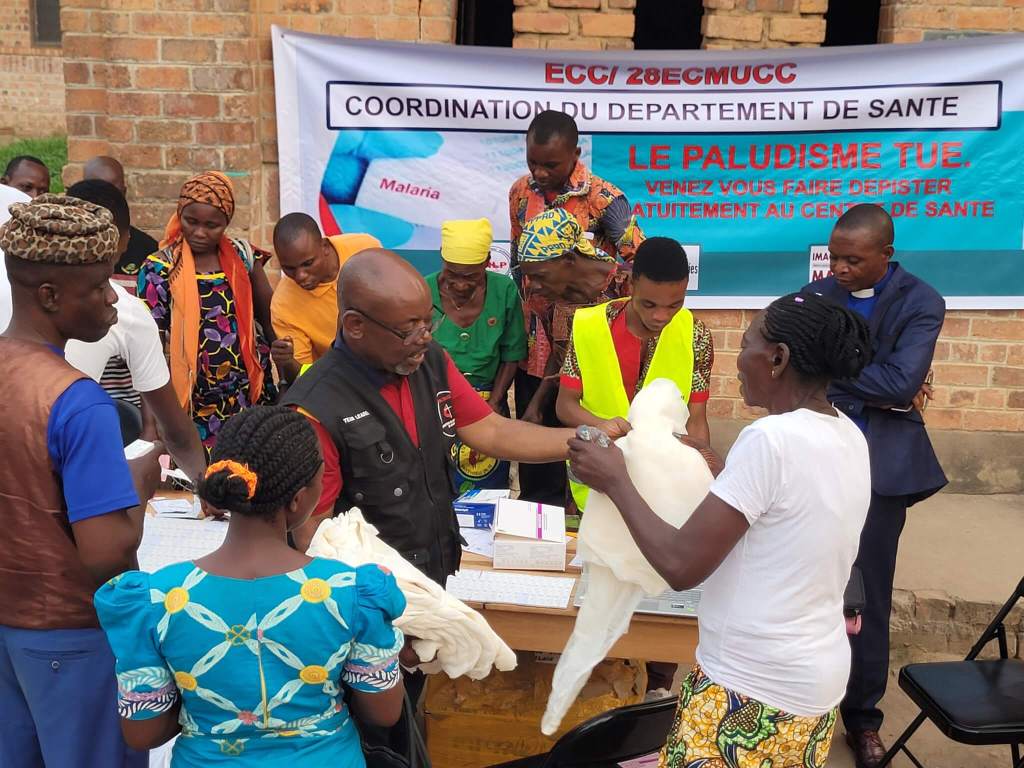
ATLANTA – When one-year-old Mamie came to the United Methodist health clinic near her home in Sierra Leone, she was very sick. Quickly diagnosed with malaria through a rapid test, she was treated with antimalarial medication and recovered after several days.
But Mamie’s parents worried about how they would pay for her care. So, when Mamie’s father learned that his daughter’s stay and treatment at the clinic were free, he lept for joy and thanked God and the clinic healthcare workers for healing his child.
According to the World Health Organization, 96% of worldwide deaths from malaria occur in Africa, and 80% of those cases occur in children. But since 2008, Global Ministries’ Imagine No Malaria campaign has joined the global fight against malaria to save the lives of children like Mamie.

In the East African country of Burundi, malaria rates doubled in 2019. But since then, Global Ministries has ensured that anyone who visits a United Methodist health facility can receive a mosquito net to reduce their chances of infection. Pastors and students at 20 local schools have been trained to spread malaria awareness, educating classmates and parishioners about malaria symptoms and encouraging them to visit a health clinic at the first sign of disease, since early intervention is critical.
In Angola, community participation in malaria prevention and education is also strong. Youth workers go door-to-door to meet with families and demonstrate how to hang mosquito nets. As in Burundi, they encourage their neighbors to recognize the signs of malaria and visit local clinics. And community members trust that they will be able to receive treatment at those facilities.
“Most of the people surrounding Quéssua [health clinic] come from very poor homes,” explains David, a health volunteer at a clinic in Angola. “They cannot afford to pay for these services in [the] city, but at Quéssua, they get all services for free.”
Global Health
Through United Methodist conferences and health boards, Global Ministries works to strengthen whole networks of health responses, from revitalization of facilities and staff training to building better water sources, developing sanitation facilities and promoting nutrition. Global Health concentrates on eradicating preventable diseases, such as malaria, HIV and AIDS, and COVID-19, and supporting the most vulnerable populations, including mothers, newborns and children.
Support the work of global health.

